A Day in the Company of the Prophet ﷺ in Ramadan
Ramadan, Prophet, Suhoor, Iftar, Last ten days,
Ramadan fasting became obligatory in the second year of Hijra, providing Prophet Muhammad ﷺ with the opportunity to observe it for nine years. Distinct from other months, Ramadan involved special acts of worship and remembrance for the Prophet. Understanding and incorporating these practices into our lives can greatly enrich our Ramadan experience.
Suhoor:
The day of Prophet Muhammad ﷺ during Ramadan commenced with Suhoor (pre-dawn meal). He would have suhoor slightly before the Fajr prayer. Hadiths indicate that there was a short span of around 50 Qur'anic verses between the Prophet's suhoor and the pre-dawn Fajr prayer.
Partaking in Suhoor is a significant Sunnah of Ramadan. The Prophet ﷺ emphasised, "Eat your Suhoor, for there is a blessing in Suhoor" (Bukhari, Muslim). The Prophet sometimes had Suhoor with his family and other times with his companions. Irbad bin Zaria (RA) narrated, "The Prophet ﷺ invited me to Suhoor during Ramadan and said, 'Partake in this blessed meal'" (Abu Dawud, Nasa'i).
After Suhoor, Prophet Muhammad ﷺ would stay at home until the Fajr prayer. Following the Adhan, he would perform two light Rakat at home. Upon completion, he would proceed to the mosque to lead the congregation in the Fajr prayer. Post-Fajr, he would engage in the remembrance of Allah at the mosque until sunrise. The Duha prayer performed approximately 20 minutes after sunrise, was advised by the Prophetﷺ, stating that those who prayed Fajr, remembered Allah until sunrise, and then performed Duha would receive the reward of a complete Hajj or Umrah (Tirmidhi).
Daytime and Iftar:
During the daytime in Ramadan, Prophet Muhammad ﷺ would come from his house to the mosque for obligatory prayers and lead the congregation. Even while at home, the Prophet ﷺ followed a hands-on approach, assisting his wives in household chores. Aisha (may Allah be pleased with her) mentioned that he would contribute to household tasks and attend the mosque when appropriate. Reports also highlight instances of the Prophet ﷺ personally engaging in activities like milking goats and mending clothes.
Shortly before Maghrib (sunset), the Prophet ﷺ would engage in dhikr (remembrance of Allah). At Maghrib, he would break his fast at the house of one of his beloved wives, often using dates for iftar. If dates were unavailable, he would break his fast with plain water. The Prophet ﷺ stressed the importance of not delaying iftar once it was time.
After iftar, the Prophet ﷺ would go to the mosque to perform the Maghrib prayer and return home for the Sunnah prayer.
Night of the Prophet ﷺ in Ramadan:
At the time of Isha (night prayer), the Prophet ﷺ would pray Sunnah at home and then go to the mosque to lead the congregation in the Isha Jamaat. While the Prophet ﷺ initially performed Taraweeh prayers in congregation at Masjid Nabawi for three days, he later refrained from doing so. Concerned that it might become obligatory for the Ummah, making it challenging for them, he opted to perform Taraweeh prayers at home.
Hadiths reveal that the Prophet ﷺ spent a considerable amount of time in prayer at home during Ramadan nights. Before Witr (odd-numbered night prayer), he would sleep briefly, then wake up to perform Witr, intending it to be the final prayer of the night.
Some nights, the Prophet ﷺ engaged in intimate relations with his wives, rested until Fajr (pre-dawn), then woke up, performed a ritual bath, and went to the mosque.
Qur'an and Sadaqah
Prophet (PBUH) would spend more time with the Holy Quran during Ramadan. The Prophet (PBUH) used to recite all the verses of the Holy Qur'an that had been revealed till then in Ramadan with Jibreel. The Prophet (PBUH) told his daughter Fatimah that this was a sign of his death and that Jibreel did this twice in the year of the Prophet's ﷺ death. (Bukhari, Muslim).
In a hadith reported by Imam Ahmad, who is quoted by Ibn Abbas (RA), it is said that every night of Ramadan, Jibreel used to come to the Holy Prophet ﷺ and they used to recite the Qur'an to each other.
The hadith also indicates that the Prophet ﷺ, who was generally generous, was extremely generous when Gabriel came during Ramadan. Ibn Abbas (RA) points out that the Prophet's ﷺ generosity in Ramadan reached everyone very quickly, like a blowing wind.
The Last Ten Days:
During the last ten days of Ramadan, Prophet Muhammad ﷺ intensified his engagement in worship, particularly through I'tikaf (spiritual retreat) and additional prayers. These days held a special significance, especially with the anticipation of Laylatul Qadr (the Night of Decree), and the Prophet dedicated himself to extra dhikrs (remembrance of Allah) and duas (supplications).
Aisha (may Allah be pleased with her) mentioned that if the Prophet ﷺ found time for both sleep and worship in the first twenty days of Ramadan, but he would spend the whole night for Ibadah (worship) during the last ten days. (Ahmad)
In these final days, the Prophet ﷺ would call upon his family members, urging them to engage in prayer. Ali (may Allah be pleased with him) reported that the Prophet ﷺ would gather both the young and old who were capable of praying during the last ten days. Additionally, the Prophet ﷺ had the practice of waking up his beloved daughter Fatimah and her husband Ali (may Allah be pleased with them) for night prayer.
A distinctive practice of the Prophet ﷺ during the last ten days of every Ramadan was to observe I'tikaf, where he would spiritually seclude himself in the mosque. In the year of the Prophet's passing, he observed I'tikaf for an extended period of 20 days. (Bukhari)
Historical Events:
Prophet Muhammad's Ramadan was marked by profound historical events, emphasising the active and purposeful nature of his life during this sacred month. Two significant battles, the Battle of Badr and the peaceful conquest of Makkah unfolded in Ramadan, contributing to the rich memories of Islamic history.
Battle of Badr: One of the most crucial events occurred in the second year of Hijra during Ramadan, coinciding with the establishment of compulsory fasting. The Battle of Badr stands as a pivotal moment in Islam's early years.
Conquest of Makkah: In the eighth year of Hijra, another monumental event transpired during Ramadan – the peaceful conquest of Makkah. This significant victory marked the return of the Prophet ﷺ to his birthplace.
In addition to these major battles, various smaller conflicts and extensive preaching activities were undertaken by the Prophet ﷺ during Ramadan, demonstrating his unwavering commitment to the message of Islam.
Furthermore, noteworthy personal events occurred during Ramadan:
Marriage of Zainab bint Khuzaima: In the third year of Hijra, Prophet Muhammad ﷺ entered into marriage with Zainab bint Khuzaima, highlighting the importance of family life even amid significant historical events.
Marriage of Ali and Fatimah: Imam Qurtubi documents that Ali (may Allah be pleased with him) married Fatimah, the daughter of the Prophet ﷺ, during the blessed month of Ramadan, emphasising the significance of family bonds in the Islamic tradition.
About the author: Faisal Niyaz Hudawi is a postgraduate of Darul Huda Islamic University, Kerala, India, in Islamic Studies. His research interests include Islamic economics and finance, as well as Muslim world politics. He is interested in digital activism and founded Islamonweb.net and thesite.in. He has been a resident of Qatar for more than 12 years.
Disclaimer
The views expressed in this article are the author’s own and do not necessarily mirror Islamonweb’s editorial stance.

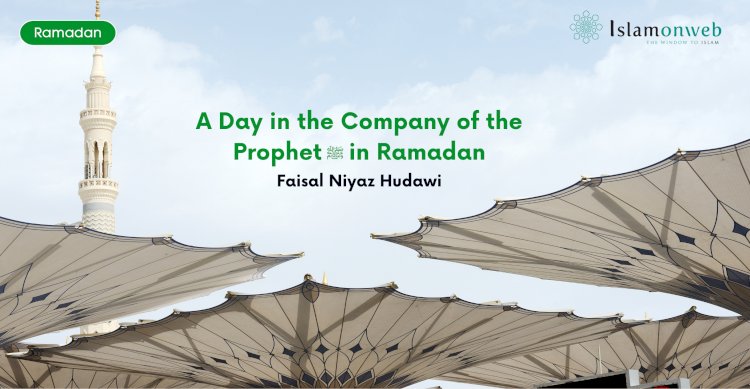



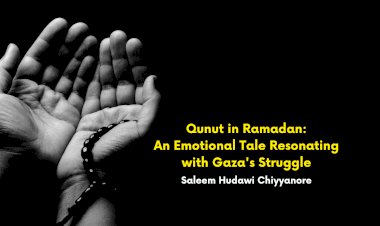
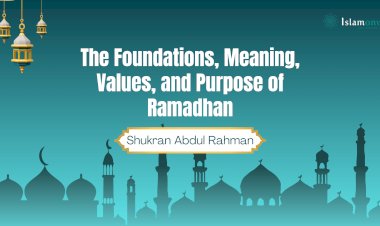
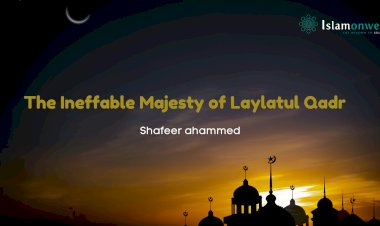

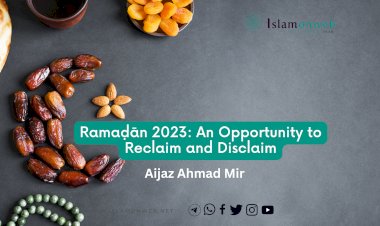














Leave A Comment